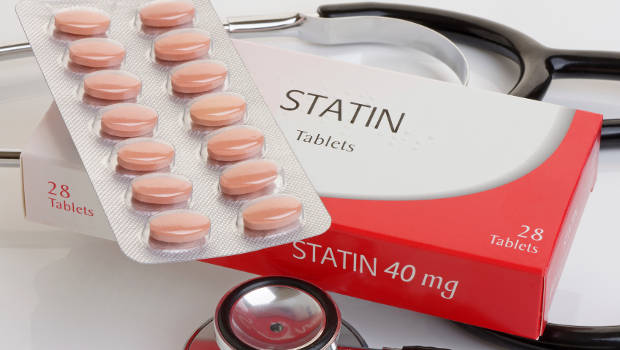Diabetes health: Pharmacy outreach increases statin use but not costs

Calls from pharmacists and EHR reminders improved cardiovascular outcomes in Group Health patients with diabetes, Dr. James Ralston and colleagues found
by James Ralston, MD, MPH, Group Health Physician and Group Health Research Institute senior investigator
Most people with diabetes die from diseases of the heart and blood vessels. Results from randomized controlled trials indicate that patients with diabetes can reduce their risk of heart attacks, strokes, and other cardiovascular events by taking statin drugs to lower their blood cholesterol levels. Many diabetes patients who might benefit from statins aren’t taking them, though. In 2003 to 2005, Group Health rolled out a system-wide effort to improve preventive care for members at risk of cardiovascular disease, including people with diabetes.
The effort was innovative in the way it used pharmacists and the Group Health electronic health record (EHR). Pharmacists called Group Health members with diabetes who were eligible for a statin or blood pressure-lowering drug based in part on information in the EHR. The EHR was also modified to remind health care providers to prescribe the drugs to patients with diabetes, when appropriate. Other EHR changes made ordering the medications easier. A new paper analyzes how the effort affected statin use, cardiovascular health, and the cost of care for people with diabetes.
A positive impact on heart outcomes with no effect on cost
In “Health Outcomes of Population-Based Pharmacy Outreach to Increase Statin Use for Prevention of Cardiovascular Disease in Patients with Diabetes” in the Journal of Managed Care & Specialty Pharmacy, David Grembowski, PhD, a GHRI affiliate researcher at the University of Washington School of Public Health; GHRI Senior Biostatistician Melissa Anderson, MS; and I looked at data on more than 11,800 Group Health members from 1997 to 2010. All had diabetes, along with other inclusion criteria. We found that statin use in qualifying members went from about 35 percent when pharmacy outreach started to 90 percent in 2010. We also found effects on strokes, heart attacks, and death from cardiovascular events.
Our analysis showed that greater statin use was associated with reductions in strokes and heart attacks and lower likelihood of death for cardiovascular reasons. For the highest statin-use category, these risk reductions ranged from 29 percent to 63 percent. Although increased statin use raised drug costs, the total cost of care didn’t change in our study population. We think this might be because the increase in medication costs was offset by fewer treatments for cardiovascular events.
A complicated analysis but support for pharmacy outreach
Analyzing quality improvement efforts is complex because the data come from real-world clinical practice. Unlike in randomized controlled studies, our measurements reflected patients making their own health decisions with their care team, as they should. This complicates our interpretations, though. For instance, we saw that statin use was higher in members with more health issues. We don’t know if this is because people who knew they had more cardiovascular risks were more likely to take statins, or for another reason. We also found that, in contrast to randomized clinical trials that saw reduced risk of all-cause mortality with statin use, we observed no significant change in overall mortality. Our paper considers several explanations for this result, including that the people who used statins the most had poorer overall health.
Our most important finding was that in this population of people with diabetes covered by our health care organization, statin use was associated with lower risk of death from cardiovascular events. Since we found that pharmacy outreach and EHR reminders that encourage appropriate statin use did not increase overall costs of care, our work may lead other health care systems to consider adopting this type of program.
This study was funded by Grant No. R21 HS019501 from the Agency for Healthcare Research and Quality (AHRQ) and was conducted as part of the AHRQ announcement Optimizing Prevention and Healthcare Management for the Complex Patient (R21; RFA-HS-10–009).
Learn more about Group Health Research Institute.


